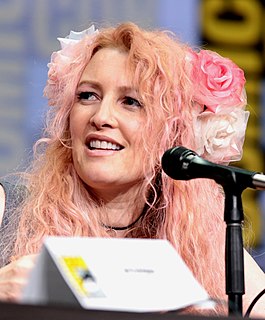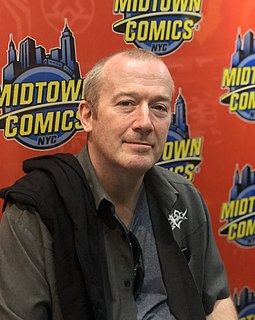A Quote by Adrianne Palicki
Alan Moore's writing is almost novelistic. It's very intricate and wordy and smart.
Related Quotes
Chris Claremont once said of Alan Moore, "if he could plot, we'd all have to get together and kill him." Which utterly misses the most compelling part of Alan's writing, the way he develops and expresses ideas and character. Plot does not define story. Plot is the framework within which ideas are explored and personalities and relationships are unfolded.
Howard Chaykin was one of the few who dared to make mainstream comics different back in the eighties; it was guys like him, Alan Moore and Frank Miller who made sure there'd be no going back. Howard's work on The Shadow is amongst his very best: razor-sharp character work, sizzling dialogue and an unsurpassed sense of layout and design.
This symmetrical composition--the same motif at the beginning and at the end--may seem quite "novelistic" to you, and I am willing to agree, but only on condition that you refrain from reading such notions as "fictive," "fabricated," and "untrue to life" into the word "novelistic." Because human lives are composed in precisely such a fashion.
































